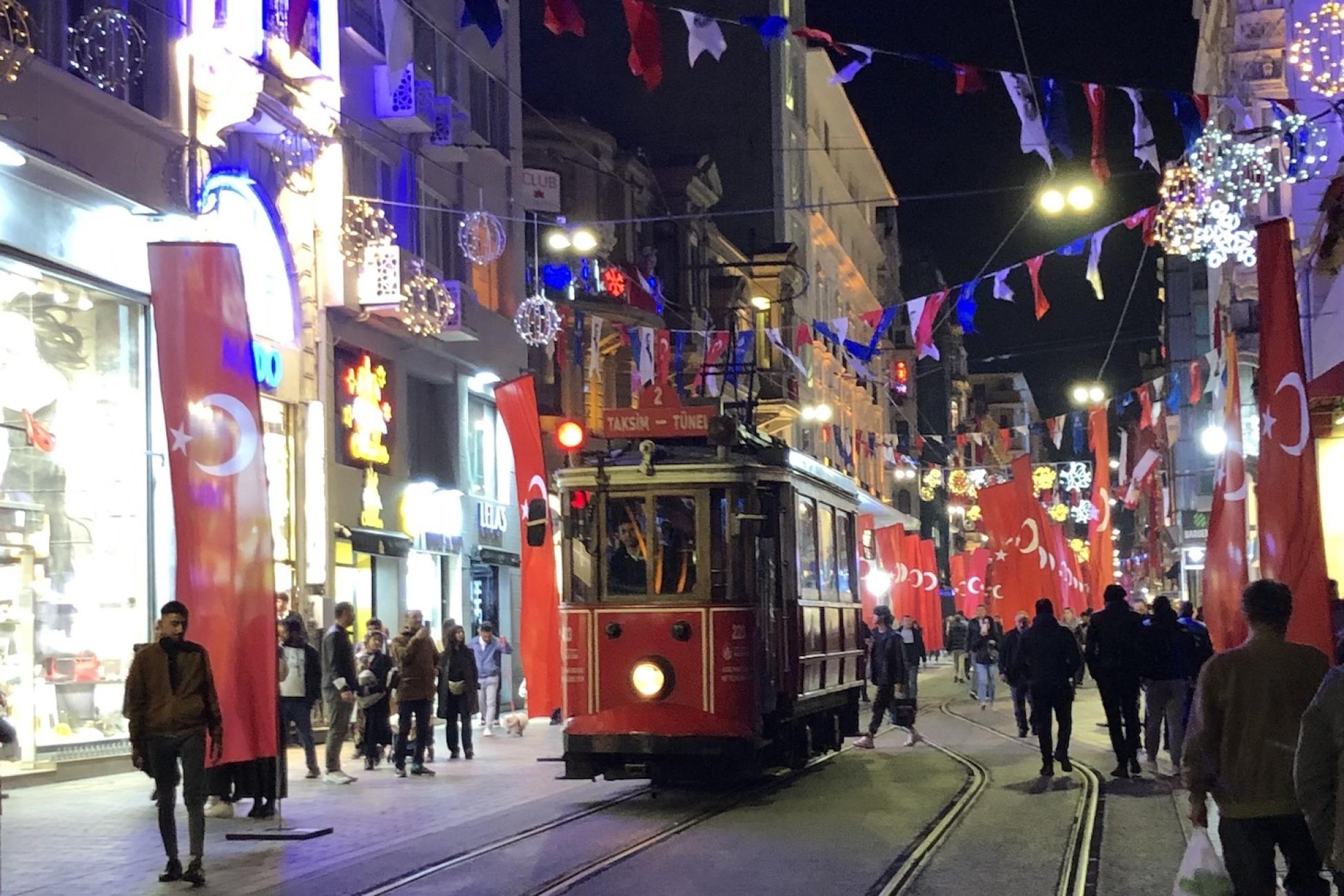"We're not afraid. We're here, and we're not going anywhere." – Ebru Kelleli, shopkeeper on Istiklal Street, Istanbul
Regardless of where you go, the world is waiting for you. There are local realities and global challenges everywhere. Whether it’s climate change, poverty, inflation, labor unrest, or terrorism, you need to adapt when you travel.
Recently, a couple colleagues from the Pedagogical State University and I were meant to take a short trip to Istanbul to meet with leaders in our field of language learning.
But the day before we were set to depart, there was a bombing on Istiklal street.
If you have ever been to Istanbul you know this street. It’s the long meandering pedestrian street leading from the Tunel funicular to Taksim Square. Restaurants, coffeeshops, cafes, shopping, embassies, historical buildings: Iskitlal has it all.
This is why it was chosen as the target for a bombing and, right or wrong, Turkey has assigned blame to Kurdish opposition groups for the explosion, which killed six people and injured around 80 more.
Should I stay or should I go now?
After we heard about the bombing, my colleagues and I had a decision to make. We had been planning the trip for a few weeks, we were excited to learn about the work being done at Istanbul University, and we didn’t want to cancel.
Truth be told, we were also excited simply to be going to Istanbul. I’ve said it before and I’ll say it again: Istanbul feels like the centre of the world to me. It’s an incredibly unique place and I hadn’t been there since 2016, when my wife and I taught in Eastern Turkey (Erzurum) in May of that year and spent a few days in Istanbul in June right after other terrorist bombing attacks.
I was excited to make a trip to Istanbul. But the day after a bombing?
I hadn’t stayed away because of the attacks, but because of the aftermath of an attempted coup that summer. President Erdogan imprisoned many academics—including some of the participants in our conversational English course—and relations between the U.S. and Turkey thawed considerably.
With all of this in mind, I was excited to make another trip to Istanbul. But the day after a bombing? I had a big decision to make.
"Terrorism tourism"
There's a theory that the safest time to visit a place is in the immediate aftermath of a terrorist attack.
This is called terrorism tourism, and I don’t know if I subscribe to it or not but the theory is simple enough: terrorist attacks don’t usually happen one right after another. Also, police presence in tourist areas is heavily increased. So if you go immediately after an attack, you should be safe enough. Istanbul is also a huge city, and I figured I would just avoid the most touristic places like Sultanahmet (also known as the Blue Mosque) and Iskitlal Street.
The risks weighed up, my colleagues and I decided we would go to Istanbul. (To be perfectly honest, I also had the feeling that “it won’t happen to me” even though I’m sure the six people who died and all the people who got hurt probably had the same feeling, too.)
Taking calculated risks
With plane tickets purchased, Airbnbs booked, and airport transfers arranged, I proceeded with my plans. I was only there a few days, and the atmosphere of the city felt the way it always had—exciting to the point of exhilaration. We spent a few days with the most technology-forward language and culture program I’ve ever seen.
Although I'd intended to avoid it, in the end I actually made a point to ride the Tunel up to Iskitlal Street. I wanted to pay my respects to those who were injured and lost their lives. I knew there would be a memorial, and I was right. It was sobering to think just a couple days earlier there had been a tragic explosion at that very spot.
Whenever I leave home, unpredictable things can happen. I can eliminate most variables, but not all. Flights can get cancelled, weather can turn foul, local political conditions can unexpectedly turn disastrously bad or even dangerous.
Every time I travel I have to consider these variables and make the best decision for me and my family in that moment. This time, I decided to take the trip, but maybe next time I won’t.
I am glad I went because the information I gained from my inspirational friend and his team at Istanbul University—but it was a risk I knew I was taking and this time I got lucky.
Add this article to your reading list





